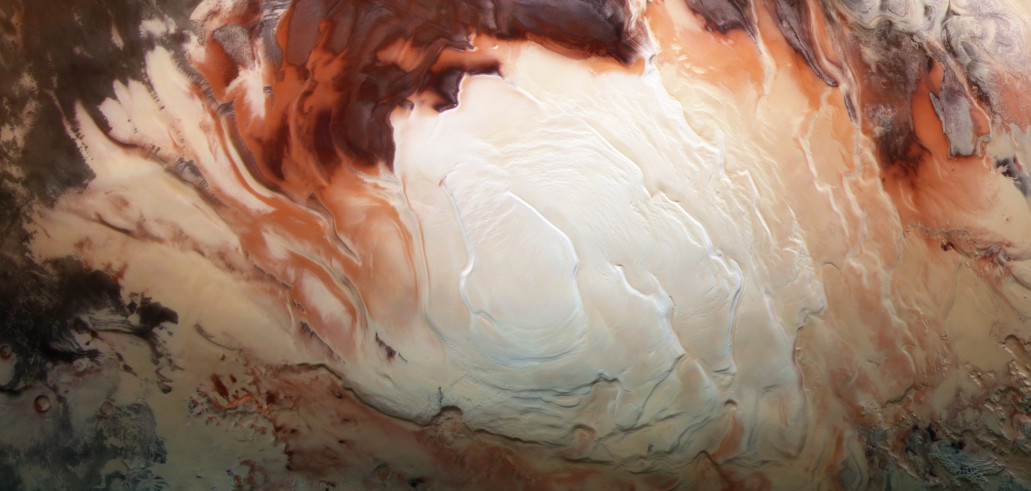Nearly three years after scientists confirmed that Mars still has lakes filled with liquid water, a new study suggests there may be more water than previously thought, including ‘dozens’ of lakes less than a mile beneath the surface of the Red Planet.
Researchers from NASA’s Jet Propulsion Laboratory analyzed data from the European Space Agency’s Mars Express orbiter and saw dozens of radar reflections around the Martian south pole similar to the discovery made in 2018.
The radar signals were found in a region of Mars known as the South Polar Layered Deposits, home to water ice, dry ice and dust that have lived there for millions of years.
However, many of these findings are in areas that are potentially too cold for water to remain liquid, even with the presence of salty minerals known as perchlorates, a fact that currently puzzles researchers.

|
| The Martian south pole as seen by Mars Express |
“We’re not sure if these signals are liquid water, but they appear to be more prevalent than what the original paper found,” study co-author Jeffrey Plaut, a researcher at NASA’s Jet Propulsion Laboratory, said in a statement.
“Either liquid water is common beneath Mars’ south pole or these signals are indicative of something else.”
Expanding the initial search to look at more than 15 years of data on the south polar region revealed that some of the lakes were less than a mile from the surface.
In March, a separate study said that between 33 and 99 % of the “lost water” on Mars could be hidden under its crust, thanks to billion-year-old rocks that can store water.
The surface temperature of Mars is roughly minus 81 degrees Fahrenheit (minus 63 degrees Celsius), which would be too cold for water to remain liquid.
In the past, Mars had a low axis of inclination, allowing snow and dust to settle in the region of the the south polar sediments as they are today.
If the water is indeed liquid, it could be from volcanic activity or something else, the researchers said.
In May, researchers discovered volcanic deposits in satellite images of Mars that showed volcanic eruptions in the past 50,000 years.
If it’s not volcanic activity and the water is indeed liquid, the researchers say further study is needed to find out the root cause of it.
The results were published in the journal Geophysical Research Letters.

